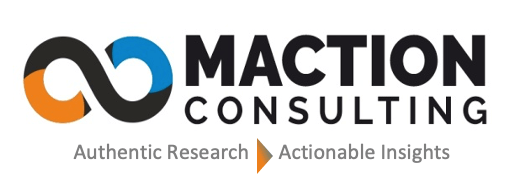Artificial intelligence (AI) is revolutionizing the field of market research, offering unprecedented insights into consumer behavior. However, this transformative power comes with significant ethical considerations. This blog post will explore the key ethical challenges of AI in market research, focusing on data privacy, algorithmic bias, and the need for transparency.
- Data Privacy: A Fundamental Concern
AI algorithms thrive on data. In market research, this often involves collecting vast amounts of personal information, from browsing history and purchase patterns to social media activity and even biometric data. This raises serious concerns about data privacy and security.
- Data breaches: The risk of sensitive consumer data falling into the wrong hands is ever-present. A single breach can have devastating consequences for both individuals and companies, eroding trust and damaging reputations.
- Surveillance concerns: The extensive data collection practices enabled by AI can create a sense of constant surveillance, leading to concerns about individual autonomy and freedom.
- Lack of transparency: Consumers often remain unaware of how their data is being collected, used, and shared. This lack of transparency undermines trust and can lead to feelings of powerlessness.
- Algorithmic Bias: Perpetuating Inequality
AI algorithms are trained on historical data, which can reflect and amplify existing societal biases. This can lead to discriminatory outcomes in market research, such as:
- Targeting errors: AI-powered advertising systems may disproportionately target certain demographics, excluding others from relevant marketing campaigns.
- Biased insights: AI-driven market research may produce biased results that misrepresent consumer preferences and needs, leading to misguided business decisions.
- Reinforcing stereotypes: Biased algorithms can perpetuate harmful stereotypes, further marginalizing already disadvantaged groups.
- The Need for Transparency
Transparency is crucial for building trust and ensuring ethical AI practices in market research. This includes:
- Explainability: Companies should be able to explain how their AI algorithms work and how they arrive at their conclusions.
- Data provenance: Consumers should have a clear understanding of how their data is collected, used, and shared.
- Algorithmic audits: Regular audits of AI algorithms can help identify and mitigate biases, ensuring fair and equitable outcomes.
Case Study 1: Compas Recidivism Score
The COMPAS (Correctional Offender Management Profiling for Alternative Sanctions) algorithm is used to assess the risk of recidivism among criminal defendants. Studies have shown that this algorithm exhibits racial bias, disproportionately predicting higher recidivism rates for Black defendants compared to white defendants with similar criminal histories. This case highlights the dangers of relying on AI systems trained on biased data, which can perpetuate and exacerbate existing inequalities.
Case Study 2: Amazon’s Recruitment Tool
Amazon developed an AI-powered recruitment tool to screen job applicants. However, the algorithm exhibited gender bias, penalizing resumes that included the word “women’s” as in “women’s chess club.” This incident demonstrates how even seemingly neutral AI systems can reflect and amplify existing societal biases, leading to discriminatory outcomes.
Mitigating Bias and Ensuring Ethical AI Implementation
Several strategies can help mitigate bias and ensure ethical AI implementation in market research:
- Data de-biasing techniques: Employing techniques such as adversarial debiasing and fair representation learning can help remove or mitigate biases in training data.
- Fairness-aware machine learning: Developing algorithms that explicitly incorporate fairness constraints can help ensure equitable outcomes.
- Diverse teams: Building diverse teams with diverse perspectives can help identify and address potential biases in AI systems.
- Regular audits and evaluations: Conducting regular audits and evaluations of AI systems can help identify and address biases and ensure ongoing compliance with ethical standards.
Conclusion
AI offers immense potential for transforming market research, but it is crucial to address the ethical implications associated with its use. By prioritizing data privacy, mitigating algorithmic bias, and ensuring transparency, companies can harness the power of AI while upholding the highest ethical standards.


